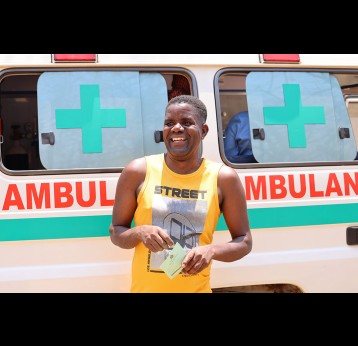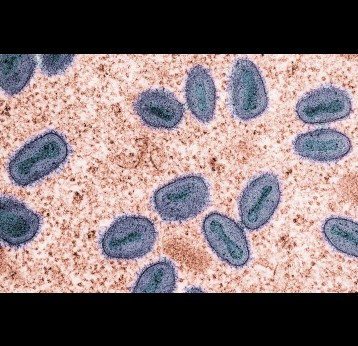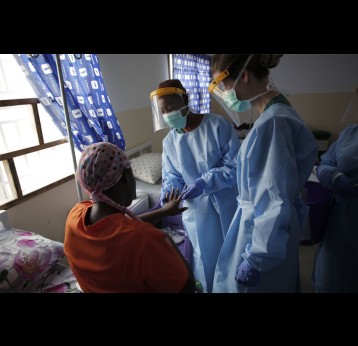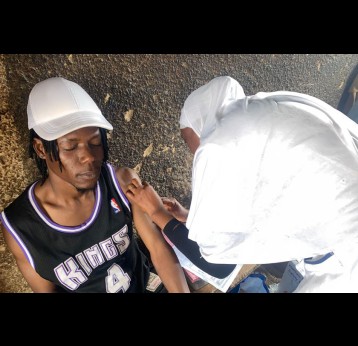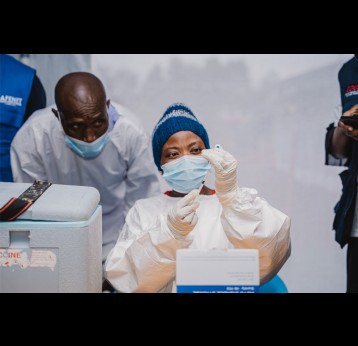Introduction
On 5 September 2025, the World Health Organization (WHO) announced that mpox is no longer a Public Health Emergency of International Concern (PHEIC), thereby concluding the emergency phase of mpox response, and shifting the focus to long-term management and sustained, lower-level efforts to control the disease. Against this backdrop, it remains important to reaffirm the key principles guiding Gavi’s coordination of donated mpox vaccine doses (should future donations become necessary). Drawing on lessons learned through the COVAX Facility, these principles aim to promote: vaccine equity; rapid response to outbreaks; and consistency with Gavi-funded vaccine doses purchased through the First Response Fund – while managing risks, and ensuring operational feasibility and cost-effectiveness for recipient countries.
These principles were shared with donors and their agencies at the outset of the outbreak in summer 2024, and their feedback was integrated. To date, nearly half a million donated doses facilitated by Gavi have been delivered to outbreak-affected countries. In parallel, since September 2024, Gavi-supported partnerships have enabled delivery of 1 million additional doses, contributing substantially to broader outbreak control efforts in Africa.
These principles will continue to guide Gavi’s mpox vaccine dose donation coordination work until the Gavi-funded global mpox vaccine stockpile becomes operational in 2026.
The principles
- Country ownership: No vaccine doses will be shipped to a country unless they are considered acceptable by the recipient country. Recipient countries and/or a formally designated country agency – e.g. Africa Centres for Disease Control and Prevention (Africa CDC) – retain the right to accept or refuse dose donation offers.
- Visibility on key vaccine information and timelines: Donors should provide timely, comprehensive information on vaccine doses to be donated – such as batches, volumes, shelf life, storage location/conditions and availability timelines. Manufacturers should offer forward visibility on delivery schedules to enable rapid, efficient deployment; and to maximise shelf life in country.
- Fully funded: Donated vaccine doses should be fully funded by donors. Donors are encouraged to fund all ancillary costs, including safe injection equipment (e.g. syringes, safety boxes), freight, repackaging and any insurance costs.
- No country earmarking: In accordance with Gavi’s and partners’ philosophy of equitable access, vaccines should be donated without earmarking for specific countries, to allow flexible allocation according to the Access and Allocation Mechanism (AAM) and deployment across countries – in line with regional and/or global demand priorities, as well as with Gavi eligibility requirements.
- Indemnity and liability: In order to use donated vaccine doses, recipient countries should not be required to indemnify donors and/or manufacturers, given existing regulatory approvals globally, and the duration and scale of existing vaccine administrations outside of clinical trial settings. Indemnity and liability considerations will be addressed within the broader AAM framework.
- On-label use only: To ensure simplicity and to streamline operations, donated doses must be used strictly for on-label purposes in recipient countries.
Product characteristics
- Safe and effective: All donated vaccine doses must be of assured quality with, at a minimum, authorisation from a WHO Listed Authority (WLA), WHO Emergency Use Listing Procedure (EUL) or WHO prequalification (PQ).
- Minimum shelf life: Donated vaccine doses must have a minimum shelf life of six months upon arrival in the country. This aims to balance the time needed to facilitate operational roll-out with the reality of an emergency response and management of vaccines.
- Reasonable quantity of vaccine doses: Gavi has a preference to ensure donation offers are sufficiently large to be cost-effective, operationally practical and responsive to the specific demand in recipient countries.
- Source of donations: Donated vaccine doses may be sourced either directly from the manufacturer or from doses already in the possession of donor countries. Gavi will assess all available doses, considering their characteristics and the recipient country’s demand. This evaluation will be integrated within the AAM framework to align supply with the recipient country’s response timelines and demand.
- Product labelling: When donating doses, donors should indicate the language of the labels and inserts of the donated products. Translation into French may be required.
Articles related to mpox
View allIn Malawi’s townships, ‘relatable’ youths step up as mpox peer educators
Trained up on the facts by the Ministry of Health, a cohort of committed young people have taken to the trenches against both ignorance and misinformation.
Long mpox? Research suggests mpox may cause health problems long after the rash heals
Study finds scarring plus bowel, urinary and sexual problems more than a year after clade II mpox infection.
A new mpox variant has been identified in the UK. Should we be worried?
The new strain combines both currently recognised strains of the virus – clade I and clade II. Scientists are watching closely.
Sierra Leone’s mpox case-count is plummeting. Can the country get to zero new infections?
Ten months into a national public health emergency, and nearly six months into a vaccination campaign, Sierra Leone appears to be winning its fight against mpox.
How the mpox vaccine has changed lives – and minds – in Kinshasa
Nobody in the DRC’s hard-hit capital wants to relive the fear of the epidemic’s apex.
In Kaduna, Nigeria, all hands are on deck to fight an mpox outbreak
Massive turnout for the mpox vaccine is slowing the spread of the virus in the northern Nigerian city, raising hopes among residents after weeks of alarm.
How a new global vaccine stockpile will help to counter the ongoing mpox threat
Mpox still poses a major risk, but rapid delivery of vaccines could help halt outbreaks before they spread.


